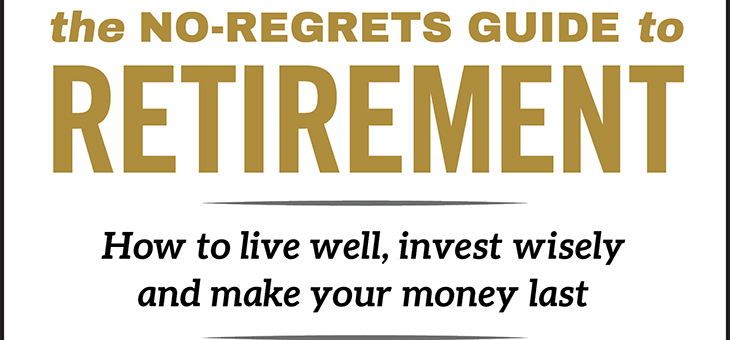About 500,000 Australians will retire in the next five years and with COVID wreaking havoc on finances, many face increased uncertainty about how long their money will last and how to avoid hiccups.
In her book, The No-Regrets Guide to Retirement: How to live well, invest wisely and make your money last, qualified financial planner Patricia Howard provides a no-nonsense, practical guide on what it takes to get you to, and through, retirement. In this extract, she offers a guide to the most common rip-off schemes that could trip you up.
•••
Online scams
The most obvious are online scams. ASIC (the Australian Securities and Investments Commission) estimates Australians lose some $30 million to online scams every year and, sadly, once your money is lost, there is very little that can be done to get it back.
Online scams come in many forms, from bogus emails just appearing on your computer requesting you to send money to clear a tax debt or outstanding judgement, to the infamous online love affair scams.
The best advice is just don’t. Don’t send money to an online bank account and never give your bank account details or identification documents, such as your driver’s licence, to anyone online without knowing exactly who you are dealing with.
Read more: 102yo grandmother scammed out of aged care bond
Simplistic investments
The next biggest scam to avoid is investments that are simply too good to be true. The most common are companies promoting investments they describe as being like term deposits or secured against property, but which offer a much higher return.
Typically, if you dive into these investments you will learn your funds are being used to provide ‘mezzanine’ finance to property developers and instead of being secure, usually are totally at risk should the development not prove profitable.
Watch out for family
Unfortunately, another key way retirees end up losing money is at the hands of their family or loved ones. Too often on entering retirement, people will discuss with their loved ones just how much money they have in superannuation.
In doing so, it is easy for family members to think you can or should spare just a little of it and give it to them. This can be as simple as making you feel guilty if you don’t, through to actually breaking the law to get their hands on your precious savings.
Read more: Generation Boomerang puts pressure on parents
The best way to avoid all of this is to never discuss your finances in detail with family members or loved ones. Unless you are very confident of your financial situation, you should keep every cent of retirement savings to provide for you in retirement.
While many will argue this is not strictly a rip-off, I believe maintaining a self-managed super fund, or do-it-yourself super fund, in retirement is.

Self-managed super
Self-managed super funds can be a great vehicle for creating wealth but, typically, they lose their reason for being in retirement and just become a time-consuming and costly way of keeping your superannuation savings.
They require your accountant to lodge reports and tax returns for the fund, which in turn means accounting and compliance bills of several thousand dollars each year.
This money can be saved by simply closing the SMSF and moving your savings into a quality retail fund. Typically, you will have the same level of control over your savings as you do with a SMSF but at a fraction of the cost.
Be wary of retirement homes
Finally, many people choose to move into retirement homes for the easier lifestyle they offer and for the support and comfort of having a strong community around them. However, this can often end in tears. Make sure you find a good solicitor to review any paperwork and ensure your financial rights and obligations are fully explained to you before you sign on the dotted line, so you know exactly what you can expect in the future.
Do you keep as up to date as possible with the scams that are doing the rounds? Do you keep your financial situation to yourself or share with family? Let us know in the comments section below.
Read more: Going it alone in retirement – an expert guide
If you enjoy our content, don’t keep it to yourself. Share our free eNews with your friends and encourage them to sign up.
Patricia Howard, author of The No-Regrets Guide to Retirement: how to live well, invest wisely and make your money last (Wiley), is a licensed Australian financial adviser. She has a commerce degree from the University of Melbourne, holds her own Australian Financial Services Licence and recently passed the FASEA Financial Adviser exam.Find out more at www.patriciahoward.com.au
Disclaimer: All content on YourLifeChoices website is of a general nature and has been prepared without taking into account your objectives, financial situation or needs. It has been prepared with due care but no guarantees are provided for the ongoing accuracy or relevance. Before making a decision based on this information, you should consider its appropriateness in regard to your own circumstances. You should seek professional advice from a financial planner, lawyer or tax agent in relation to any aspects that affect your financial and legal circumstances.

